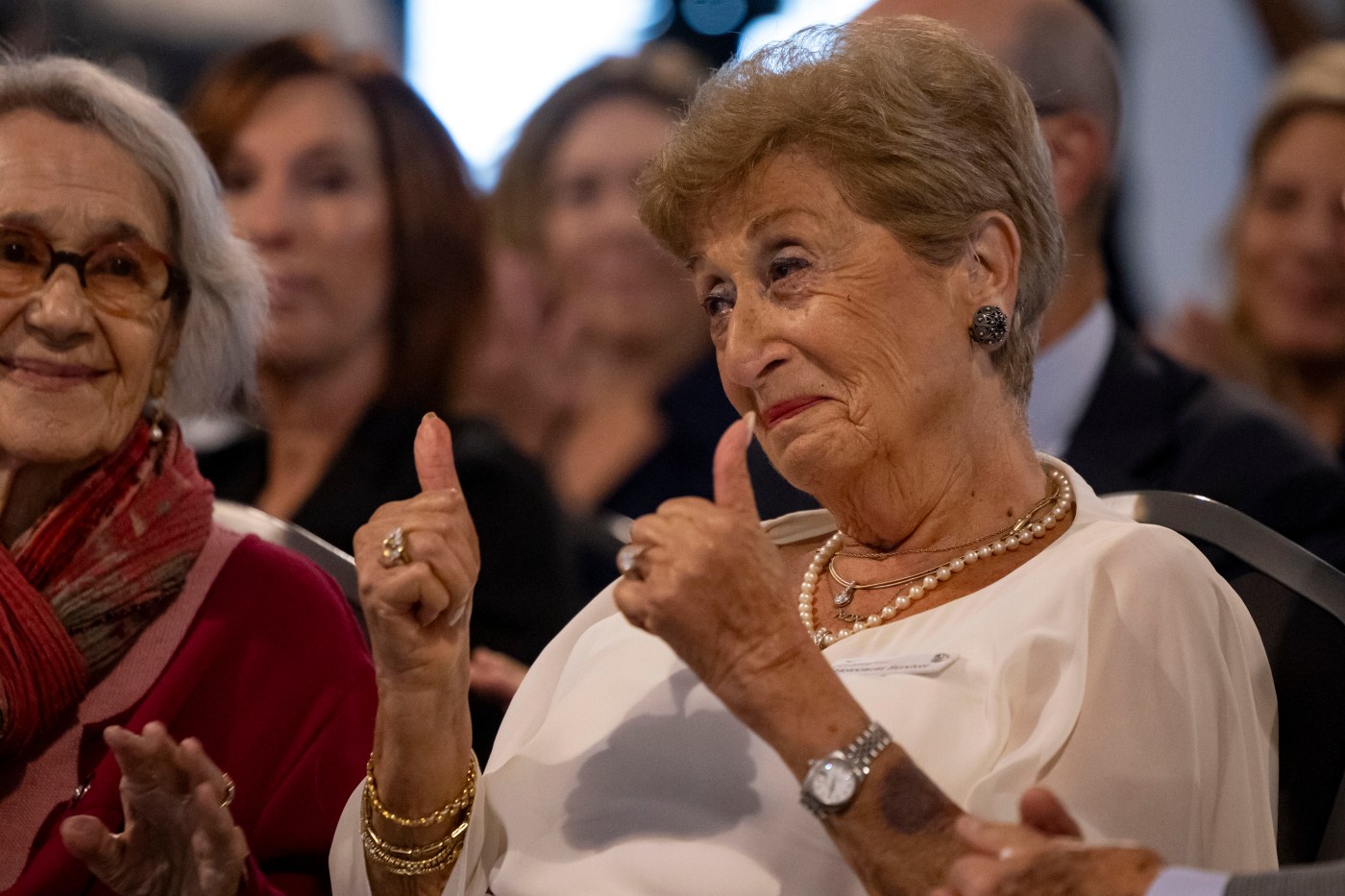UPDATE: The Illinois Holocaust Museum has just opened its groundbreaking satellite location, Experience360, in downtown Chicago, featuring powerful holographic stories of genocide survivors. This urgent initiative aims to combat the rising tide of hate and antisemitism globally, coinciding with the 80th anniversary of the end of the Holocaust.
On August 25, 2025, the museum held an opening ceremony at 360 N. State St., which also marked International Rohingya Genocide Remembrance Day. Illinois Governor JB Pritzker emphasized the importance of this new space in educating individuals about the devastating consequences of indifference. “This space will educate thousands every year about the horrors that result from indifference while inspiring us to learn from the past to transform our future,” he stated.
Experience360 combines new exhibits with the museum’s established offerings, including immersive holograms of survivors and interactive 360-degree films. Visitors will don virtual reality headsets, transporting them to significant locations like Amsterdam and Paris, where they can engage in conversations with Holocaust survivors through holographic technology. “It is unbelievable to be able to sit there and have this two-way conversation,” said CEO Bernard Cherkasov.
The holographic theater features three new interactive interviews, including accounts from Holocaust survivors Rodi Glass and Marion Deichmann, as well as Kizito Kalima, a survivor of the Rwandan genocide. Kalima’s presence marks a significant addition to the museum, as he is the first featured survivor from a genocide that did not involve the Holocaust. He expressed his hope that sharing his story will help prevent future atrocities.
Kalima explained, “They need to prevent it or call it out as soon as they see the signs … because the genocide, the Holocaust and other atrocities don’t happen overnight.” His words serve as a critical reminder of the ongoing relevance of such education.
The Experience360 exhibit also highlights the resilience and strength of survivors, including the impactful stories of Glass and Deichmann. Glass, whose virtual reality experience allows visitors to walk the streets of Amsterdam, has been sharing her narrative since 1998. “I hope the people who come will know that … and that hate doesn’t get them anywhere,” she said.
Deichmann, author of “Her Name Shall Remain Unforgotten: A Child in the Heart of the Genocide,” reiterated the necessity of these exhibits, stating, “It’s a reminder for never again, but we know it needs to be said over and over again.”
The museum’s Skokie location is currently undergoing renovations, with plans for a new visitor welcome center and expanded facilities. Cherkasov noted that visitor numbers have surged, breaking daily records multiple times in the past two years. The Skokie site is expected to partially reopen in January 2026, with a full reopening scheduled for late summer 2026, coinciding with the closure of the temporary Experience360 location.
“People look to our museum for lessons about resilience, strength, and community,” Cherkasov remarked. “My hope is that we will continue to grow.”
The Stories of Survival exhibit at Experience360 also features artifacts from survivors of mass violence in regions such as Armenia, Bosnia, and Syria. Despite ongoing global crises, including conflicts in Darfur, Ukraine, and Myanmar, Kalima insists that education remains paramount in preventing future atrocities.
“If we can educate the young generation to look at the signs, that will be a blessing to everyone,” he affirmed.
Experience360 is now open daily from 10 a.m. to 5 p.m., with admission set at $12. For more information, visit www.ilholocaustmuseum.org. This urgent initiative aims to remind us all of the past and inspire a future free from hate.
